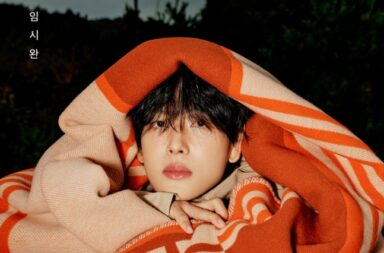While the landscape of Korean entertainment can be vast and wondrous, it’s often the little things that make us fall in love, inspire awe, evoke secondhand embarrassment, or sometimes… break our hearts.
In this segment, we ask our writers: Among the many things vying for your attention this month, what won and made your heart beat?
Idol Influencers or Influencer Idols?
— Chelsea
With the Cannes Film Festival happening this week, I’ve seen a handful of unexpected K-pop faces walking the red carpet. Black Pink Jennie‘s attendance was to be expected as she is featured in the upcoming show The Idol; however, the presence of other K-pop idols like Aespa and even BTS‘s V had me scratching my head. Why are idols who haven’t acted, seemingly have no plans of acting, and not part of any project premiering at the festival walking the red carpet? It’s exposure for SM, sure, but exposure for what? What does K-pop have to do with Cannes?
At the same time, brand ambassadorships have taken off in the past couple of years. New Jeans members are ambassadors for Chanel, Levis, etc.; Black Pink members for Chanel, Celine, Saint Laurent; BTS for Bottega Veneta, Valentino; Kai for Gucci… the list goes on. The increased interest in idols by fashion companies brought us Stray Kids‘s Hyunjin at a Versace event this week getting hugged by Donatella herself, while fellow member Felix was in Milan for Louis Vuitton. And that’s just one example of idols cozying up to designers in 2023. In addition to in-person events, it’s also all over Instagram: TXT’s Yeonjun‘s grid is essentially a series of well-curated ads rather than a social media account to show fans behind-the-scenes snapshots of his life.
All this leads to something I’ve been wondering for a while now: are idols these days becoming influencers who perform on the side? It certainly feels like that for groups like Black Pink, and I wonder what the impact will be on 4th gen groups who are up and coming now. In addition to Tik Tok, we can see companies pushing their idols in the direction of international influencers as opposed to putting them on domestic variety programs or even longer comeback promotions. As K-pop becomes more global, brand ambassadorships, Instagram followers, and Tik-Tok trends have become new measurements of a group’s success. I’m not saying it’s a bad thing, but I’m certainly taking notice.
And I’m still wondering what Aespa was doing at Cannes.
Seventeen Work Their Variety Magic on The Game Caterers and My Alcohol Diary
— Qing
I’ve been catching up on Seventeen variety content this month and particularly enjoyed their chaotic showing on The Game Caterers and the episodes of Lee Young-ji‘s My Alcohol Diary featuring Hoshi, then Joshua and DK. These shows had me reflecting on how Weekly Idol, which took a simple white basement room and turned it into more than a decade of reliable idol-driven content, paved the way for similar lo-fi but high-quality variety shows.
Part of the humour of these shows stems from a more casual approach to the setup and editing. Most variety shows on major networks (KBS, MBC, and SBS) focus on the hosts and guests, and tend not to capture the producers and other staff. But shows like Na PD‘s Three Meals a Day led the way in flipping the script and capturing interactions between cast and crew. This choice feels even more natural for YouTube-based shows, which are less locked into existing show formats and tones.
In Caterers, for instance, funny moments emerge when Na PD, known for putting guests in a spot, finds himself on the receiving end of absurd requests. As viewers, we also see our awe reflected in the producers going starry-eyed at Seventeen’s live performance, and in their stunned expressions when the “draw a wish” exercise brings about unexpected results. On Alcohol Diary, the crew’s outbursts of laughter serve almost as a 90s sitcom laugh track that elevates the comedy of the guests’ tipsy comments.
The humour in the captions of Caterers is so spot-on, it’s sublime. My personal favourites are Dino‘s mini profile (“Advantage: Has 12 hyungs / Disadvantage: Has 12 hyungs”) and the caption that appears when Woozi failed to recognise two tracks he produced and wrote (“I couldn’t recognise my own kid”).
Blackswan’s Captivating “Karma”
— Aastha
When I say I am absolutely obsessed with Blackswan’s latest release, (“Karma”), I mean it. I am desperate for more live stages. For all of Blackswan’s line-up changes so far, this is the only one that has left such a deep impact on me.
Maybe it’s the fact that it’s rare to see handheld mics in music show choreographies these days, or that the song itself is just great, or that all the members exude their own brand of charisma — whatever it is, it’s working. I’ve rewatched all their live stages on Inkigayo, The Show, and M Countdown multiple times because I just can’t get enough. I don’t even know why I’m so taken by this release.
When I first saw the teasers for the song, I was skeptical and was ready to pass it off as another typical bout of cultural appropriation. I later found out that the members spent time in India to learn about the culture, engaged with local talent, and filmed in India itself for the MV. I don’t think that that’s what necessarily drew me to the release; rather, it was the fact that music and videos are so rushed these days that the entire concept and preparation behind “Karma” was a stand-out. You can tell that there is a consistent concept being delivered from the MV down to the outfits and accessories, and that is just very pleasing to see. The groovy choreography and the charm of the handheld mics definitely appeal to my sensibilities as well, and I’m very excited for what Blackswan puts out next!
(YouTube[1][2][3][4][5]. Image via Pascal Le Segretain/Getty Images for Chopard, SM Entertainment.)


